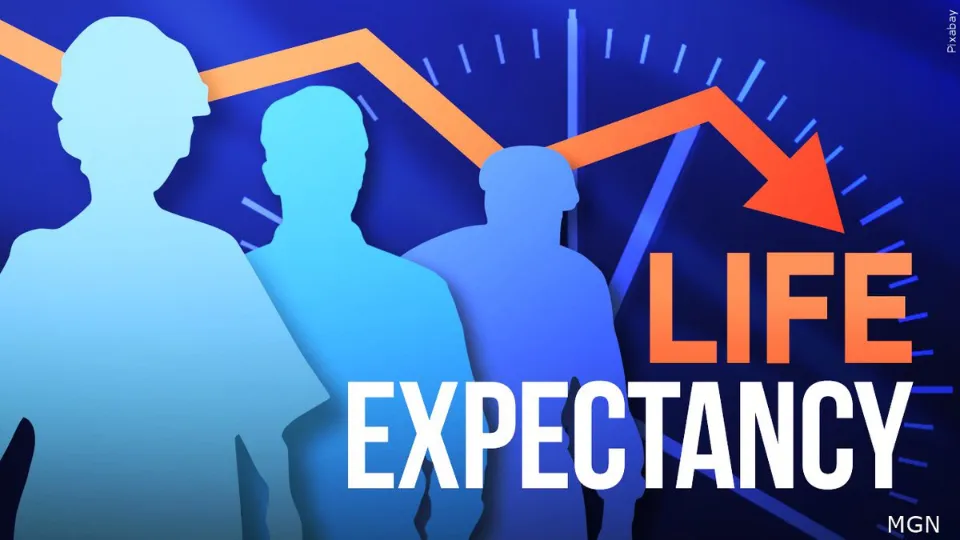When your doctor diagnoses you with atrial fibrillation (AFib), you may want to know what to expect. A prognosis is a forecast of your future health and expected lifespan due to your illness.
Research suggests that the outlook for people with AFib has improved over time, but people without In general, people without AFib have longer life expectancies. Outlook and life expectancy vary depending on the individual.
Find out how you can improve your chances of leading a long and healthy life while having AFib.
The Risk of AFib
AFib may not manifest any symptoms. However, signs and symptoms can appear and are frequently connected to a decrease in the amount of blood the heart pumps out, such as a racing or skipped heartbeat, chest pain, or lightheadedness. If you take medicine for these symptoms, they might go away on their own or get better. These episodes could occur more frequently, and the symptoms might last longer.
The persistence of AFib can increase over time. It can lead to risks such as:
- An abnormal heart rhythm. On its own, this may not be life-threatening. But if left untreated, it could lead to serious complications.
- Blood clots. Blood pools when the heart doesn’t beat rapidly enough. Blood that has gathered forms clumps known as clots. A blood clot can block the flow of blood to your organs. A stroke can be brought on by a blockage to the brain. The chance of having a stroke is about four times higher in people with AFib than in those without this condition.
- Heart failure. Over time, your heart can get so weak that it can’t pump out enough blood to meet your body’s needs. Heart failure is the medical term for this.

Atrial Fibrillation: How Long Could You Live?
Risk Factors Affecting Lives
Age of Diagnosis
The majority of people with Afib are over 65 years old, despite the fact that younger adults are now more frequently diagnosed with the condition.
Increased age increases your risk of dying from Afib as well as the likelihood of developing the condition. Older adults are more likely to have other conditions that can complicate Afib, increasing mortality.
Mortality rates in people over age 75 with Afib are three times higher than in people under age 65.
Heart Disease
Heart diseases and conditions are one major cause.6 Specific cardiac problems that can lead to Afib include:
- Cardiomyopathy
- Congenital heart disease
- Prior heart surgery
- Heart failure
- Heart valve disease
- Hypertension
- High blood pressure
Type of Afib
Depending on the type you have, Afib mortality varies as well.
- Paroxysmal Afib happens quickly and often without symptoms. This kind of Afib can stop on its own, but it can also recur.
- Persistent Afib is diagnosed when periods of Afib persists longer than a week. This type of Afib may also go away on its own, but most people with this form of Afib remain on medications to control the condition.
- Long-term persistent Afib is a form of persistent Afib with a possible year-long duration.
- Permanent Afib is diagnosed when you have undergone a number of treatments or procedures and your Afib has not yet been cured.
How to Extend Your Life With Atrial Fibrillation?
A person with AFib may improve their outlook with appropriate treatment. The primary goalsof AFib treatment are to prevent blood clots and restore a person’s natural heart rhythm and rate.
A doctor will decide on the most appropriate treatment for someone based on individual factors, such as:
- The type of AFib
- Underlying causes
- Age
- Symptoms
- Overall health

Lifestyle Changes
Doctors may recommendTrusted Source a person adopts healthy lifestyle changes to reduce their risk of complications associated with AFib. These may include:
- Maintaining a moderate weight
- Exercising
- Seeking support to stop using certain substances
- Avoiding or limiting alcohol and stimulants, such as caffeine
- Quitting smoking
- Managing stress
- Eating a heart-healthy diet
Medications
By preventing and treating blood clots and controlling the heart’s rate and rhythm, a number of medications can also aid in the treatment of AFib.
Medication options may includeTrusted Source:
- Anticoagulant drugs to reduce the risk of blood clots and stroke
- Medications that slow down the heart rate, such as beta-blockers and calcium channel blockers
- Rhythm control medications to treat the heart’s irregular rhythm, such as sodium and potassium channel blockers
Procedures Or Surgery
If a patient’s symptoms do not get better after making lifestyle and medication changes, the doctor might suggest a procedure. These may include:
- Cardioversion
- Inserting a pacemaker
- Catheter ablation
Summary
Given the wide range of variables that can impact lifespan, it is impossible to make a precise statement about how long someone with atrial fibrillation can expect to live. Fortunately, however, there are still steps you can take to extend the length of your life.



